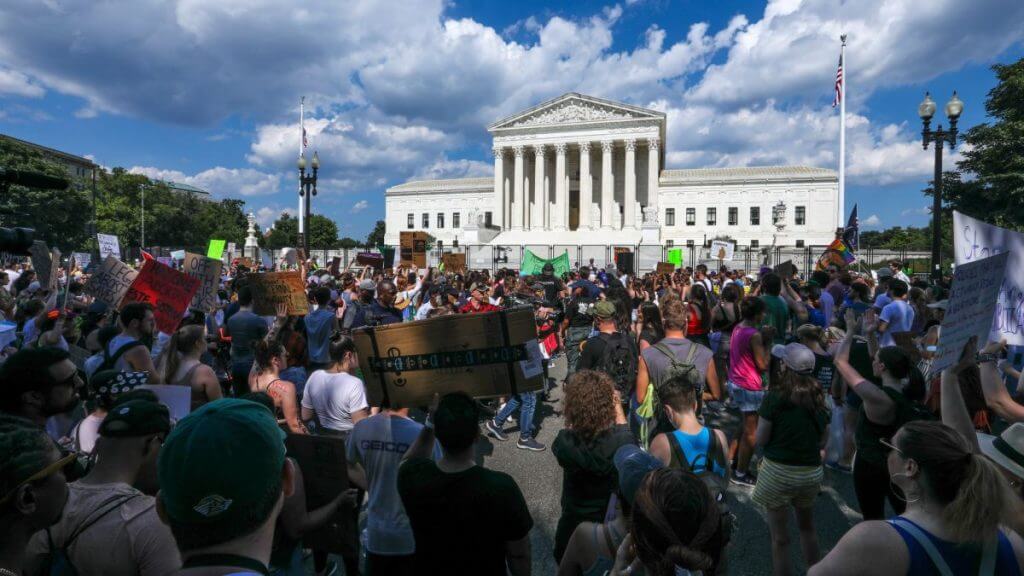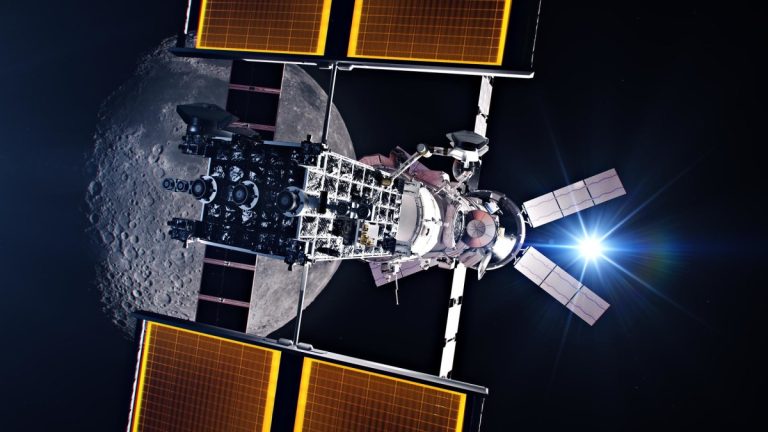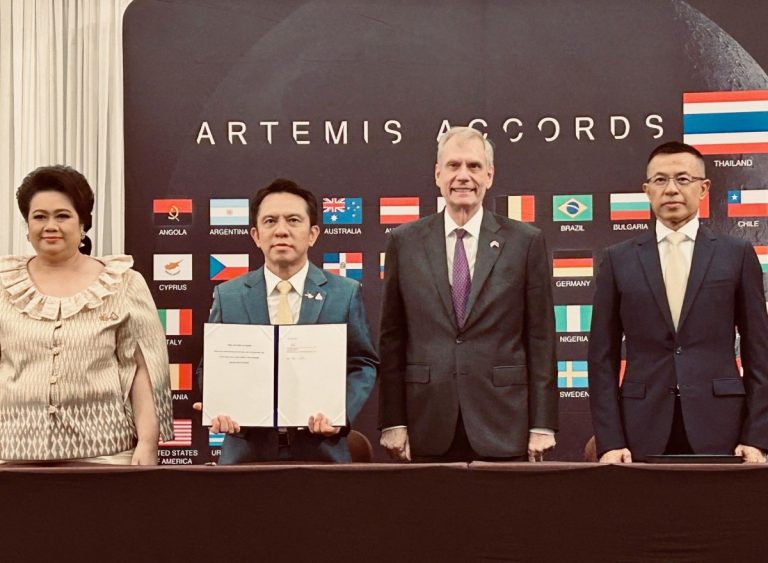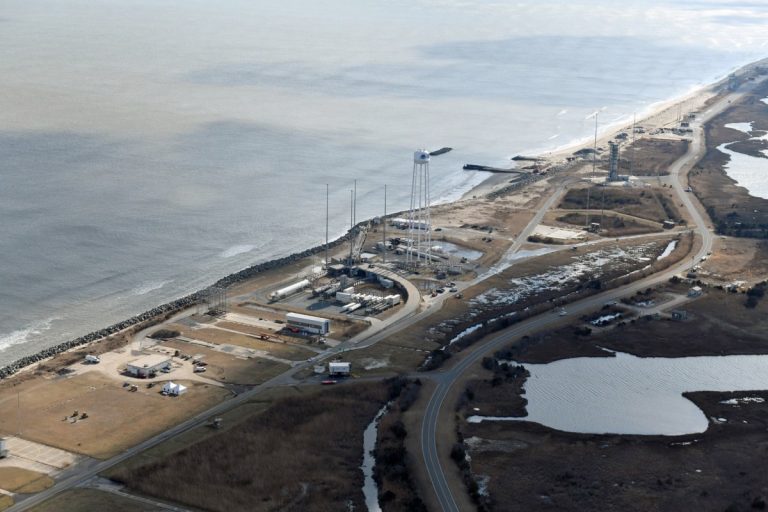
Former astronauts and space industry leaders weigh in on fall of Roe v. Wade and abortion access (Image Credit: Space.com)
Space exploration is feeling the shockwaves from the historic decision of the U.S. Supreme Court to revoke Roe vs. Wade on Friday (June 24).
The decision overturns a constitutional right to abortion in America first established in 1973, and counteracts a United Nations assertion in 2018 (opens in new tab) that abortion should be considered a human right. The loss of Roe v. Wade is so profound that the New York Times termed it (opens in new tab) a “political and social earthquake” on Sunday (June 26).
Space figures are now also weighing in on the verdict.
A former astronaut now serving in the U.S. Senate promised to never back down from fighting for abortion rights, for example.
“This is a giant step back for our country and an all hands on deck moment,” wrote Mark Kelly (D-Ariz) on Twitter (opens in new tab). Kelly flew four times in space on space shuttle missions and is married to a former Democratic senator from Arizona, Gabrielle Giffords.
Related: Texas abortion ban could take an unexpected toll on the space industry
Several individuals with connections to space talked about how abortion impacted their careers, or how the lack of it will hurt others.
Kellie Gerardi, a science communicator and researcher expected to launch into space on a future Virgin Galactic flight, wrote on Twitter (opens in new tab) that she “wouldn’t have the family or career I’ve built without access to abortion.”
“I wouldn’t be able to fly to space, participate in the workforce or reach my full potential without reproductive healthcare. I need every person or company who calls me a role model to remember that,” she said Saturday (June 25).
I wouldn’t have the family or career I’ve built without access to abortion. I wouldn’t be able to fly to space, participate in the workforce or reach my full potential without reproductive healthcare.I need every person or company who calls me a role model to remember that.June 25, 2022
“Of equal consequence, my husband wouldn’t have the family and career he’s built without this access either,” she added, noting in a separate tweet (opens in new tab) that “reproductive healthcare” (for her, meaning egg freezing and birth control) allowed her to be a candidate for a research spaceflight.
“My public vulnerability is for those who can’t be,” Gerardi said.

Implications for the ruling are vast for women, non-binary genders, transgender individuals and anyone with a uterus; in addition, the decision may ripple out to other issues revolving around privacy. One justice in the majority decision, Clarence Thomas, said in his assenting decision that the court should “overturn protections on access to contraception, same-sex relations and same-sex marriage,” the Times added.
Abortions are now regulated at the state level; more than 20 states (out of 50) are set to ban all abortions, including those required to save a pregnant person’s life, the Times reported. The ruling will disproportionately affect lower-income individuals and Black and Hispanic individuals, who statistically are less likely to be able to afford out-of-state transportation or other measures to seek safe abortion access, according to the Times.

Former NASA astronaut Terry Virts tweeted that the decision is “the latest and most egregious example of minority rule, and that needs to be fixed to save our democracy.”
He outlined several ways to address the situation: “Electoral college, term limits, filibuster, primary system, gerrymandering, etc. We need to fix these folks,” he wrote (opens in new tab) Saturday (June 25).
A media report suggests current NASA administrator Bill Nelson (a former astronaut and former Democratic Florida senator) opposes the decision, too.
“I strongly believe this ruling directly and detrimentally impacts the NASA workforce as it delegates an intensely personal decision to lawmakers in states where NASA employees live and work,” Nelson wrote in a note to agency employees, according to Reuters reporter Joey Roulette on Twitter (opens in new tab).

The fall of Roe v. Wade will see broader effects similar to those experienced in Texas after a new anti-abortion law went into effect in September 2021.
NASA’s Johnson Space Center, the hub for astronaut training, is located in Houston, and the state at large is home to numerous sectors of the space industry. Roughly 144,000 people (opens in new tab) are employed in Texas in aerospace, the state reported in 2020, including big companies like SpaceX and Blue Origin and smaller ones like Intuitive Machines and Axiom.
The Texas legislation banned any abortions more than six weeks into a pregnancy, which is before many people are aware they are pregnant. The decision came under criticism from Biden at that time, as well as from people in the space industry.
“I’ve had a handful of women *just today* seeking advice in my DMs [direct messages] because they have anxiety either deciding to take a space job in Texas or already having accepted a space job in Texas,” science communicator Emily Calandrelli, who hosts the Emmy award-winning science series “Emily’s Wonder Lab” on Netflix, tweeted (opens in new tab) on Sept. 2, the day after the law took effect. “Space leaders in Texas, please pay attention to this. You’re going to lose talent.”
And Frances “Poppy” Northcutt, who was the first female engineer to work at NASA’s Mission Control during the Apollo program and is now a Texas attorney who fights for access to reproductive healthcare, has also been weighing in on Twitter.
A really sad day to see this sign go up this morning at Houston Women’s Clinic and to see patients being turned away. This clinic had been the 4th largest provider of abortions in the USA. pic.twitter.com/q2o5KcjXbUJune 24, 2022
She shared a photo (opens in new tab) of what she said had been the fourth largest abortion provider in the U.S. with a new sign saying it could no longer offer abortions. She also encouraged (opens in new tab) those who oppose the decision to reach out to their elected representatives, among other comments.
Follow Elizabeth Howell on Twitter @howellspace. Follow us on Twitter @Spacedotcom and on Facebook.








